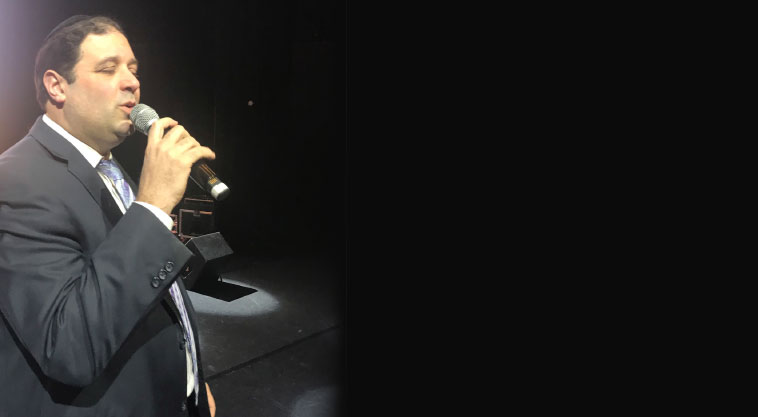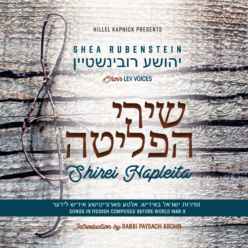Vocalist and chazzan Shea Rubenstein has a passion for helping the dwindling number of remaining Holocaust survivors. That passion has taken him on a Yiddish musical journey that he hopes will bring comforting, familiar music to the elderly and introduce young people to classic melodies of yesteryear.
“It began at a Holocaust Survivors Appreciation lunch at the JCC last year,” Rubenstein says. “Instead of welcoming the participants with a speech, I sang them some songs in Yiddish, their mother tongue. People loved the music, and I thought of creating an album of prewar Yiddish songs, which would be distributed free to Holocaust survivors through social service organizations, and additionally marketed in-store and on digital music forums in order to aid survivors’ projects.”
The album, called Shirei Hapleita, features a collection of nostalgic, heimish Yiddish favorites, from Rubenstein’s personal top-pick, the upbeat “Mizmor Shir” — “lomir zingen shir leyom haShabbos” to “Lecha Dodi” with Yiddish lyrics and the heartrending “Galus, galus vi lang bist di, Shechinah hakedoshah vi veit bist di?” All but one of the composers of these songs were killed in the Holocaust, but their voices, says Rubenstein, have not been silenced.
Shea Rubenstein is a clean-shaven real-estate developer who founded the Jewish Community Council of Marine Park, Brooklyn, where he lives — but he prides himself on his fluent Polish Yiddish. “I grew up in the Bronx, but my parents, particularly my mother, were keen on Yiddish, and my zeide was a Tchortkover chassid. We had a Yiddish zemiros book, which was the source and inspiration for many of these songs.”
For listeners who are not familiar with these old-world songs, the CD comes with a songbook, including all lyrics both transliterated and translated into English.
Linking the release of the Shirei Hapleita album to the 80th year anniversary of Kristallnacht, Rubenstein invited 200 Holocaust survivors to a launch event at the Museum of Jewish Heritage, where they could all sit together enjoying the music of their youth.
(Originally featured in Mishpacha, Issue 741)



